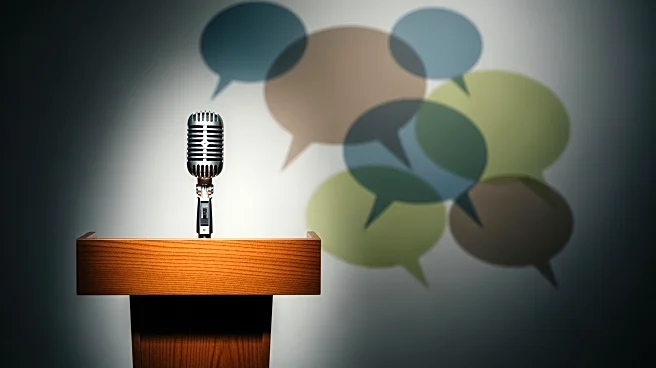What's Happening?
South Korean President Lee Jae-myung has proposed criminalizing disinformation, sparking concerns about free speech. The president's call aims to address hate speech and false information, but critics warn that government-defined disinformation could
lead to censorship and suppression of dissent. The proposal follows previous attempts by South Korean governments to crack down on free speech, with legal cases against opponents. The move has raised alarms about the potential for government overreach and the impact on democratic freedoms.
Why It's Important?
The proposal highlights the tension between combating disinformation and protecting free speech in democratic societies. Criminalizing disinformation could lead to government control over speech, undermining democratic principles and stifling debate. The issue is relevant beyond South Korea, as other countries grapple with similar challenges in balancing free expression and misinformation. The proposal serves as a warning to democracies about the risks of government-defined speech restrictions and the importance of safeguarding free speech.
Beyond the Headlines
The proposal reflects broader global debates on disinformation and free speech, with implications for democratic governance and civil liberties. The potential for government overreach in defining disinformation underscores the need for robust legal frameworks to protect free expression. The issue also highlights the role of public debate and rigorous scrutiny in addressing misinformation, rather than relying on government-imposed restrictions.
















